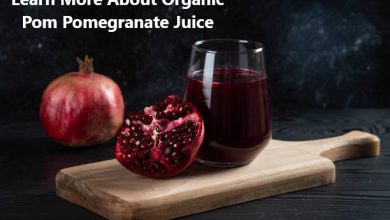5 Foods to Eat to Help Hemorrhoids

Most of us have experienced it but don’t really know what it’s all about. Hemorrhoids refer to a swollen vein located in the rectum or anus and can be classified into four different types, depending on the degree of pain, bleeding, and itching. Hemorrhoids are caused by the veins in and around our anal canal. But 90% of the time, they are caused by straining during bowel movements. Hemorrhoids are more common in sedentary, overweight, and pregnant people. And one way to treat the symptoms of hemorrhoids is by eating fiber-rich foods.
As said, hemorrhoids are caused by excessive straining when you go to the bathroom. This is why it is essential to eat a high-fiber and low-fat diet so that you don’t strain as much and keep a healthy digestive system.
However, even if you eat a healthy diet, you can still get hemorrhoids, but that doesn’t mean you should ignore them. If you are experiencing symptoms, you should consider seeing a doctor. Although there are a variety of treatments that can help, many of them don’t work. If you can avoid surgery, you should. Surgery is expensive and unpleasant. Many people who have had surgery take years to recover. So the best way to prevent hemorrhoids is to stay hydrated and healthy. If you eat right and exercise, you should have an easy time!
Here are 5 foods rich in fiber to eat to keep hemorrhoids from coming back.
Fruits
From peaches and berries to apricots and plums, you can add an assortment of colorful fruits to your diet to up your fiber intake and prevent flare-ups or recurrences. You can get even more fiber from fruit if you eat the peels – something you can do with apples, oranges, and even kiwis and mangoes. Taking a natural approach to preventing hemorrhoids is one way to ensure a better quality of life without resorting to invasive treatments that might come with adverse side effects. Utilizing in-home remedies as the first line of defense against hemorrhoids instead of over-the-counter medication is another way of investing in your health and well-being.
Whole Grains
For those who have experienced issues with hemorrhoids, including constipation, you’ll want to avoid eating white flour and white rice. While these grains have low amounts of fiber, they also tend to clog your digestive tract. White flour and white rice can worsen hemorrhoids and make them last longer. You can opt for fiber-rich whole grains like quinoa, barley, rye, brown rice, and oats that help relieve constipation.
Veggies
Eating your vegetables will help you feel full faster, boost your energy levels and prevent constipation. Acorn squash, green peas, broccoli, parsnips, carrots, and collard greens are just some of the many vegetables that contain fiber. You can’t go wrong with a big bowl of cucumber peels or potato skins!
Seeds
What’s excellent about fiber-rich seeds is how they can be incorporated into your diet. Chia, ground flaxseed, quinoa, and even psyllium are among the options you have with seeds as a reliable source of fiber to help support your digestive system. They can be sprinkled on salads, in smoothies, or even on top of your yogurt – go a step further and opt for yogurt with probiotics (live bacteria) if you want an extra digestive system booster.
Nuts
Walnuts and almonds provide an excellent source of fiber, and one of the effective fiber-rich foods. They are also very high in calcium, a mineral that helps tackle inflammation. These properties may help minimize any issues with tissue swelling or irritation due to hemorrhoids. Almonds and pistachios contain high amounts of fiber per serving. At the same time, macadamia and pecan nuts are other examples of good sources.
If you cannot sustain a fibrous diet because of stomach issues, you can always use fiber supplements. Like the food mentioned above, fiber supplements help control symptoms or avoid future hemorrhoids.
Key Takeaway
Although there are many causes of hemorrhoids, making healthy diet changes should help reduce your risk of developing them again. Adjusting the way you eat can also contribute to weight loss which is an excellent way to keep hemorrhoids at bay. Adding fiber-rich foods to your diet can significantly improve hemorrhoid symptoms by softening your stool and avoiding constipation. If you are currently experiencing hemorrhoids, take a break from eating fast food, chips, ice cream, meat, cheese, and processed foods because these foods have little to no fiber.
Additionally, it can be helpful to add both drinking more water and exercising for as little as 20-30 minutes a day to your to-do list.
If you can’t get enough fiber from your diet, you can opt to take fiber supplements that are available in various forms, such as powders, capsules, and tablets.




